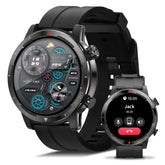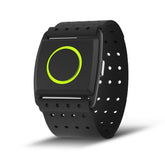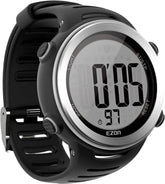The Future of Fitness Technology: Trends and Innovations
As technology continues to advance at an unprecedented pace, the fitness industry is experiencing a significant transformation. From wearable devices that monitor health metrics to innovative training solutions that enhance athletic performance, the future of fitness technology is bright and full of potential. In this article, we will explore the latest trends and innovations in fitness technology and what to expect in the coming years, focusing on sports wearable technology, hybrid sports watches, and AI smart watches.
Current Trends in Fitness Technology
1. Enhanced Wearable Technology
Sports wearable technology has become increasingly popular, with devices that provide real-time data to users. Key features and trends include:
-
Advanced Health Metrics: Wearables are now capable of monitoring a wide range of health metrics, including heart rate variability, blood oxygen levels, and even electrocardiograms (ECGs). This data helps users gain deeper insights into their health and fitness levels.
-
Integration with Health Apps: Wearables are increasingly being integrated with mobile health applications, allowing users to track their fitness journeys, set goals, and receive personalized recommendations based on their data.
2. Hybrid Sports Watches
The emergence of hybrid sports watches combines the functionality of traditional analog watches with modern smart features. These devices cater to users who appreciate classic aesthetics but desire the benefits of fitness tracking. Key characteristics include:
-
Analog Dial with Digital Features: Hybrid watches maintain a classic look while offering features such as step tracking, sleep monitoring, and notifications for calls and messages.
-
Long Battery Life: Unlike fully digital smartwatches, hybrid models often boast extended battery life, making them ideal for users who prefer minimal charging interruptions.
3. Artificial Intelligence in Fitness
AI smart watches are revolutionizing the way users approach fitness training and health management. Here’s how AI is impacting the fitness landscape:
-
Personalized Training Plans: AI algorithms can analyze user data to create tailored workout plans that adapt over time based on performance and progress. This level of personalization enhances the effectiveness of training regimens.
-
Real-time Feedback: AI technology can provide real-time feedback during workouts, helping users correct their form, optimize their pace, and push their limits more effectively.
-
Predictive Health Insights: AI can analyze trends in user data to predict potential health issues and provide proactive recommendations for lifestyle changes.
4. Virtual and Augmented Reality
The integration of virtual and augmented reality (VR and AR) into fitness technology is gaining traction:
-
Immersive Workouts: VR fitness platforms offer immersive workout experiences, allowing users to engage in activities like cycling or running through virtual environments. This can enhance motivation and make workouts more enjoyable.
-
AR Coaching: Augmented reality can provide visual cues and coaching during workouts, helping users improve their form and technique in real-time.
Future Innovations to Expect
1. Advanced Biometric Monitoring
The future of fitness technology will likely see even more advanced biometric monitoring capabilities, enabling wearables to track additional health metrics such as hydration levels, glucose monitoring, and stress hormones. This will provide users with a more comprehensive understanding of their health.
2. Enhanced Connectivity and Integration
As smart home technology continues to evolve, fitness devices will likely become more interconnected. Expect seamless integration between wearables, smart home devices, and health apps, allowing for a holistic approach to wellness that encompasses diet, exercise, and sleep.
3. Focus on Mental Health
The importance of mental health in overall wellness is gaining recognition. Future fitness technologies may incorporate features specifically designed to support mental well-being, such as guided mindfulness exercises, stress tracking, and relaxation techniques.
4. Sustainability and Eco-friendly Tech
With increasing awareness of environmental issues, there will likely be a greater emphasis on sustainability in fitness technology. Expect to see eco-friendly materials used in wearable devices and initiatives aimed at reducing the carbon footprint of manufacturing processes.
Conclusion
The future of fitness technology is poised for exciting advancements that will enhance the way we approach health and fitness. With the integration of sports wearable technology, hybrid sports watches, and AI smart watches., individuals will have more tools than ever to optimize their fitness journeys. As these innovations continue to evolve, they will empower users to take control of their health, improve performance, and lead more active lifestyles. Embrace the future of fitness technology, and be prepared to experience a revolution in how we train, track, and thrive!









